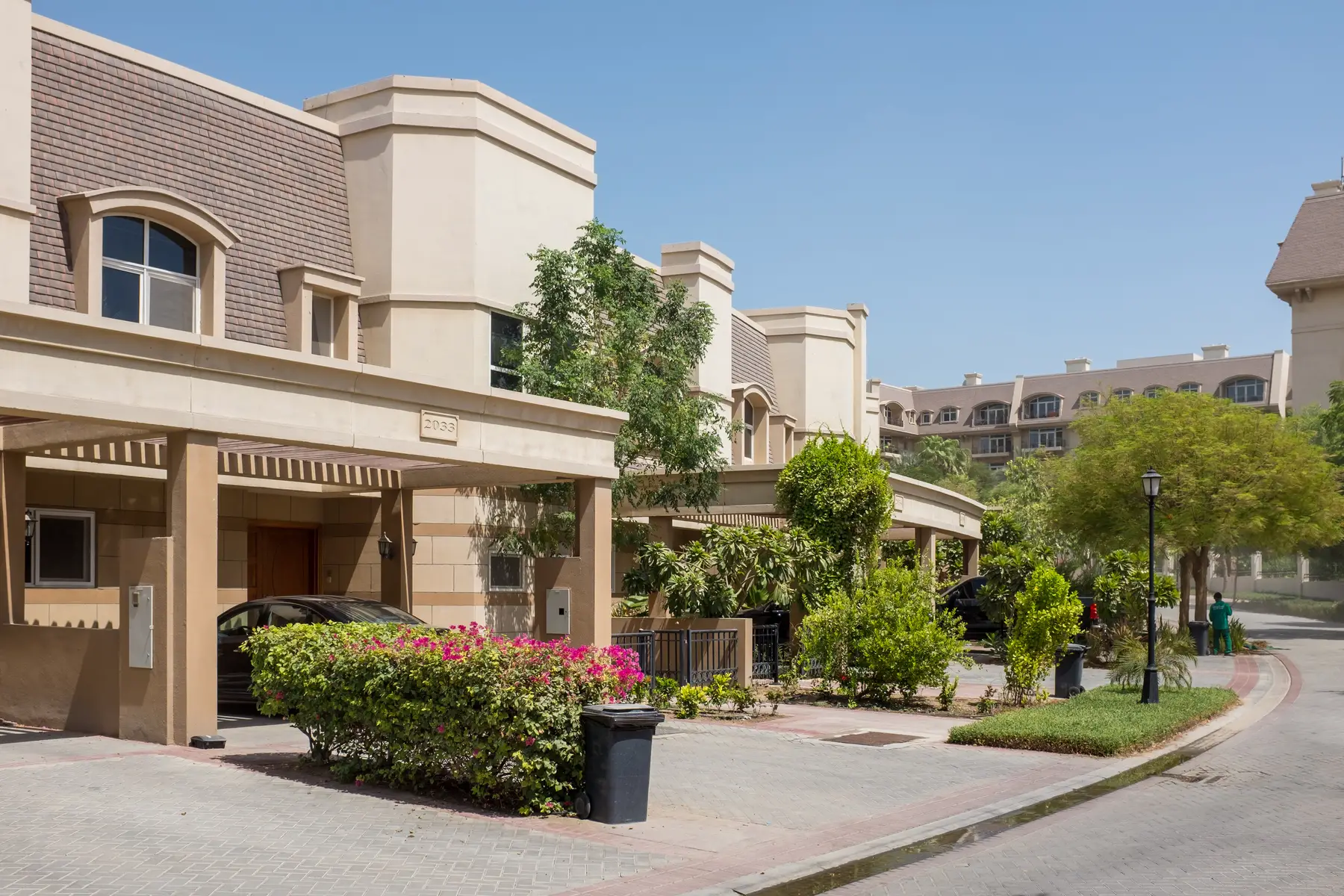All of the UAE – in particular, Dubai – has a fantastic array of rental arrangements for expats. In the larger emirates of Dubai, Abu Dhabi, and even (parts of) Sharjah, living standards can easily compare with the best of the west. This article outlines the following:
- The rental market in the United Arab Emirates
- Renting in the United Arab Emirates
- Popular places in rent in the UAE
- Buying vs renting in the United Arab Emirates
- Types of property to rent in the UAE
- Finding a place to rent in the United Arab Emirates
- How to rent a property in the UAE
- Rental costs in the United Arab Emirates
- Tenancy contracts in the United Arab Emirates
- Utilities and telecommunications in the UAE
- Tips for renting in the UAE
- Useful resources
Airbnb
Looking for a home away from home in the UAE? Airbnb is a global online community offering accommodation and experiences. They have a selection of over 6 million unique properties available through their secure booking service. So, whether you're moving to Dubai or Abu Dhabi, Airbnb has the right short-term let for you.
The rental market in the United Arab Emirates
The United Arab Emirates is a unique market in the Middle East for a single reason: most of the seven emirates are within driving distance of each other. The region boasts one of the best motorways in the world (and cheap fuel). As a result, you could be working in Abu Dhabi and living in Dubai, or working in Dubai and living in Sharjah.
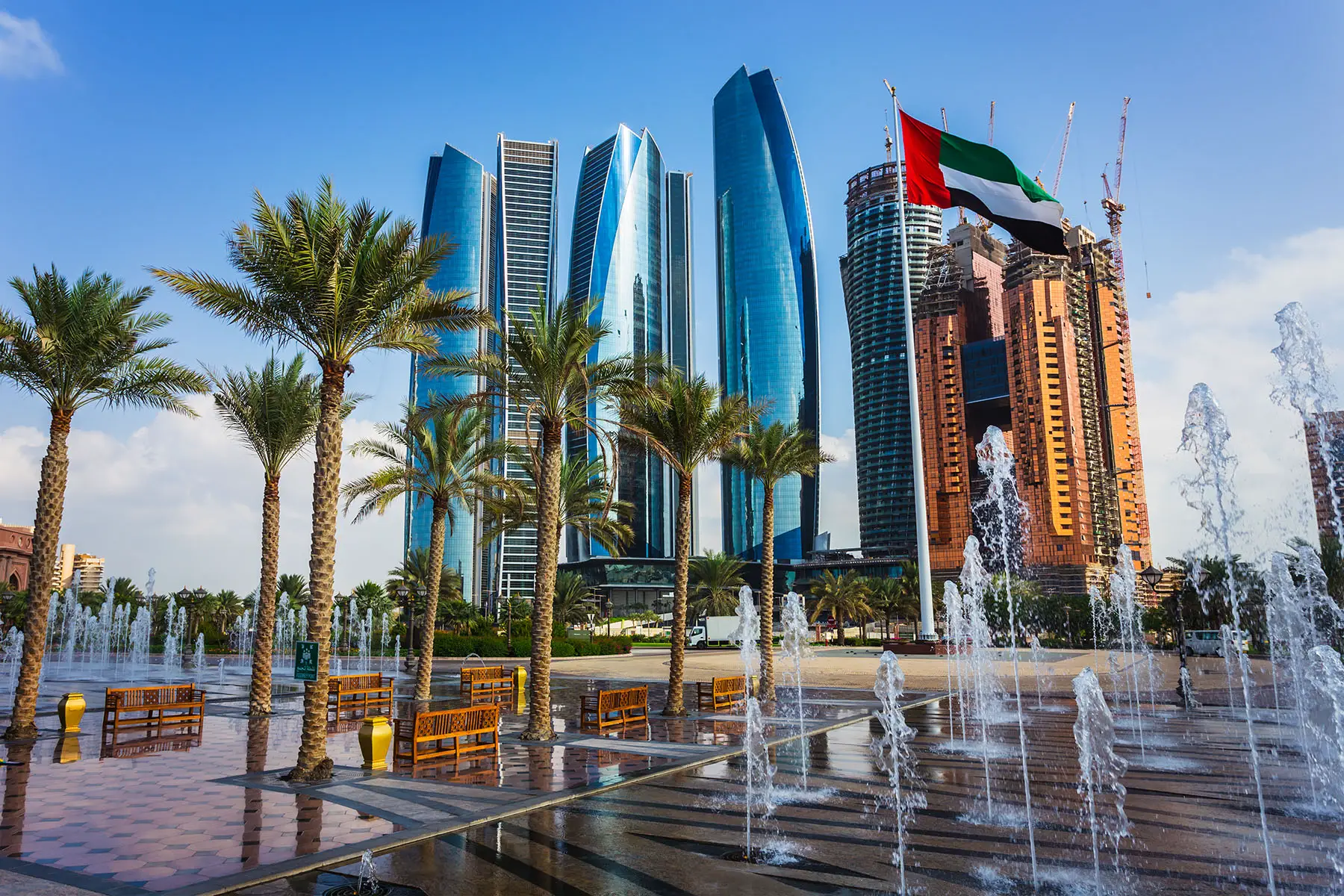
Rental costs differ from emirate to emirate. On average, Dubai boasts the highest costs, with Abu Dhabi snapping at its heels. The other emirates offer substantially lower rates, with almost no compromise on the quality of life within the premises.
The process of renting a living space is fairly efficient and time-bound – and also very watertight. The letter of the law – in the form of the tenancy contract – is all-important, therefore you need to ensure that you discuss all content before the landlord draws it up. Make sure to check the contract for specifications.
Renting in the United Arab Emirates
While there is no official data on the rental market in the UAE, as such, approximately 70% of the population take the renting route; most of which are expats.
Rents in the country are governed by the Real Estate Regulatory Authority (RERA). The rent index is fairly transparent. Therefore, if you are up to speed on that, and you feel that the agent/landlord is asking for more, you have the advantage of negotiating a better deal.
Keep in mind that the number of rental properties in the UAE far surpasses the demand, since construction has been going at breakneck speed in the country. Therefore, take your time and look for the perfect place to rent. You are bound to find your dream home – and what’s more, at more competitive rates than market intelligence will tell you.
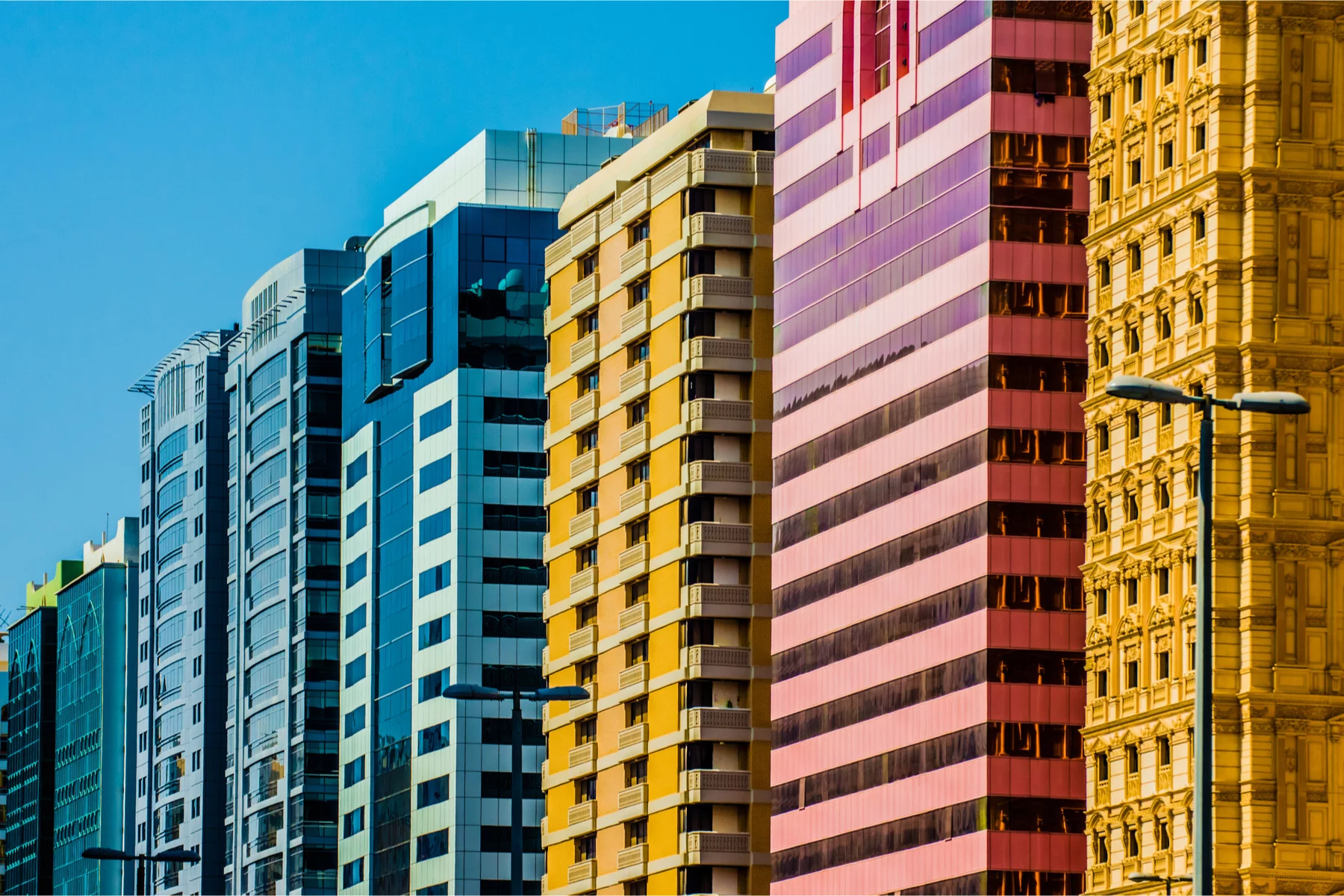
Renting in emirates such as Dubai and Abu Dhabi is an expensive proposition; some reports claim that 35 to 40% of a household’s income may be spent on rent and utilities. However, this is not strictly true. You should rent a place well within 25% of your CTC budget – and not fall for the trappings of luxury residences. Even on a budget, renting in the United Arab Emirates can have a feel-good factor.
Also, remember that cohabiting as an unmarried couple is illegal since the UAE is governed by Islamic laws. Many people get away with it, however, it is best not to take a chance. Don’t let the idea of single living put you off, though, because the UAE is one of the safest countries in the world. It provides secure and advanced amenities and is, therefore, a wonderful place for single women, too.
Popular places in rent in the UAE
Dubai Marina
Dubai’s new town is walking distance from the beach and faces the crystal-clear waters of the Dubai Marina. This area is full of swanky high-rises, great restaurants, and shopping malls. Come sundown, it’s party time in this part of town every night.
Downtown Dubai
With the Burj Khalifa at its epicenter, this is yet another genteel part of town that is right next door to the financial district. It also houses the world’s largest mall, Dubai Mall.
Bur Dubai
This is the older part of town which retains its vintage charm. You will find both villas and apartment buildings here. Aside from having great street food, this is also the cultural hub of Dubai. It’s also very well-connected to the rest of the city.
Al Reem Island, Abu Dhabi
This natural island is located 600 meters off the north-eastern coast of the UAE’s capital. Boasting gorgeous waterfront properties and spectacular views, it is a big hit with expats.
Khalifa City, Abu Dhabi
With a host of conveniences, medical centers, and good schools, Khalifa City has become one of the most sought-after spaces for expats working in Abu Dhabi.
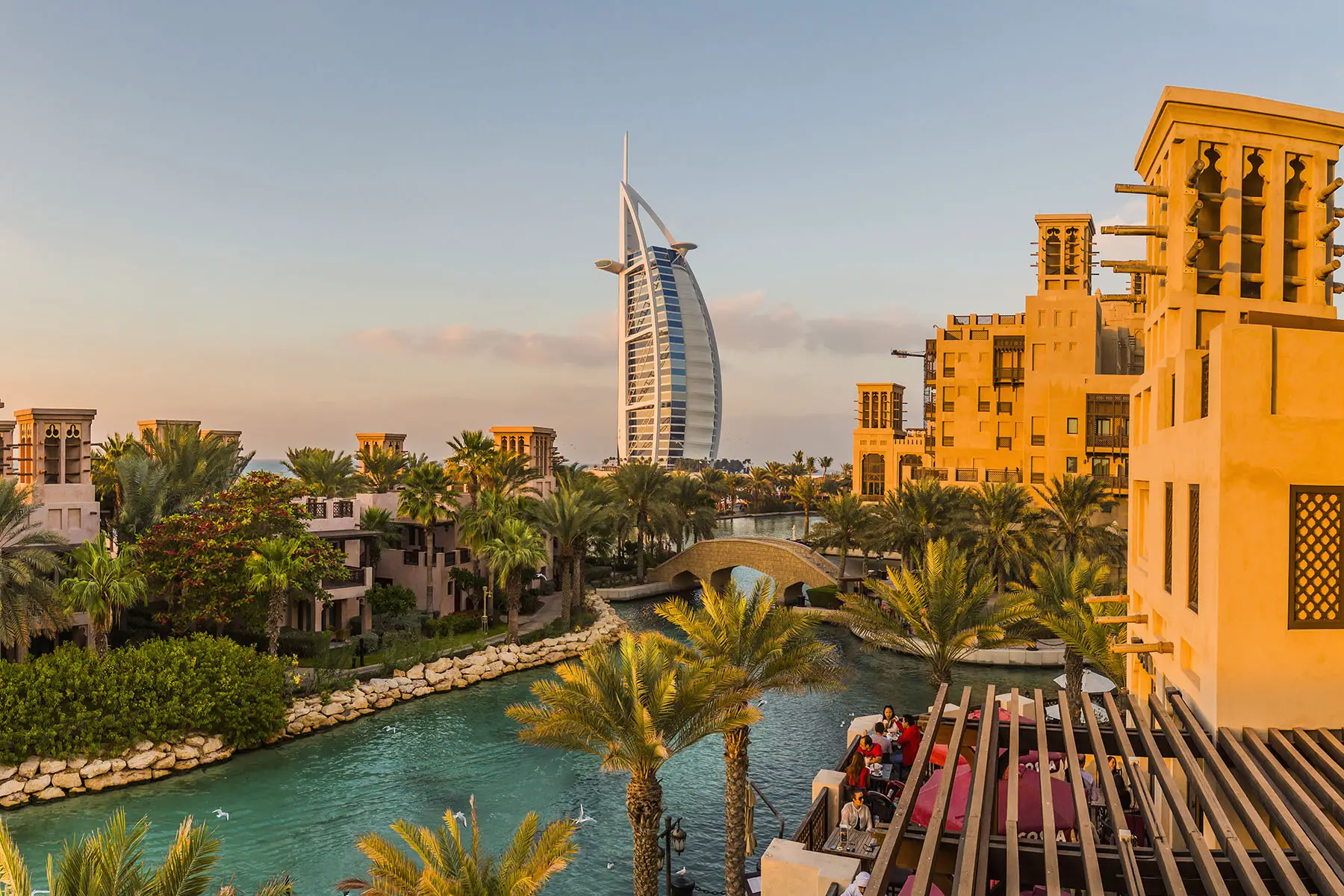
Elegant and suburban, it sits away from the hustle and bustle, making it ideal for families who live in apartments or villas.
Al Tawwun, Sharjah
This location is great for families since it is right next to the canal-side complex of Al Qasba which offers a Ferris wheel, restaurants, and art galleries.
Buying vs renting in the United Arab Emirates
The UAE is one country in the Middle East where freehold property buying for foreigners has proven a success. A lot of south Asian businesspeople (mostly from India and Pakistan) who wish to live in the UAE for the long term have invested in properties there; even though there are no citizenships/naturalizations given on this basis.
Many people who arrive in the UAE with a two- or three-year stay in mind end up living there longer and therefore buying. If you can afford it, it might not be a bad idea. Just remember that you have to pay 25% of the total value upfront. Having said that, until you decide whether you are there for the long haul, it is a better idea to rent instead.
Types of property to rent in the UAE
The United Arab Emirates, especially Dubai and Abu Dhabi, offers the prospect of incredibly luxurious living. It’s not always about the high life, however, as there are also fairly affordable options.
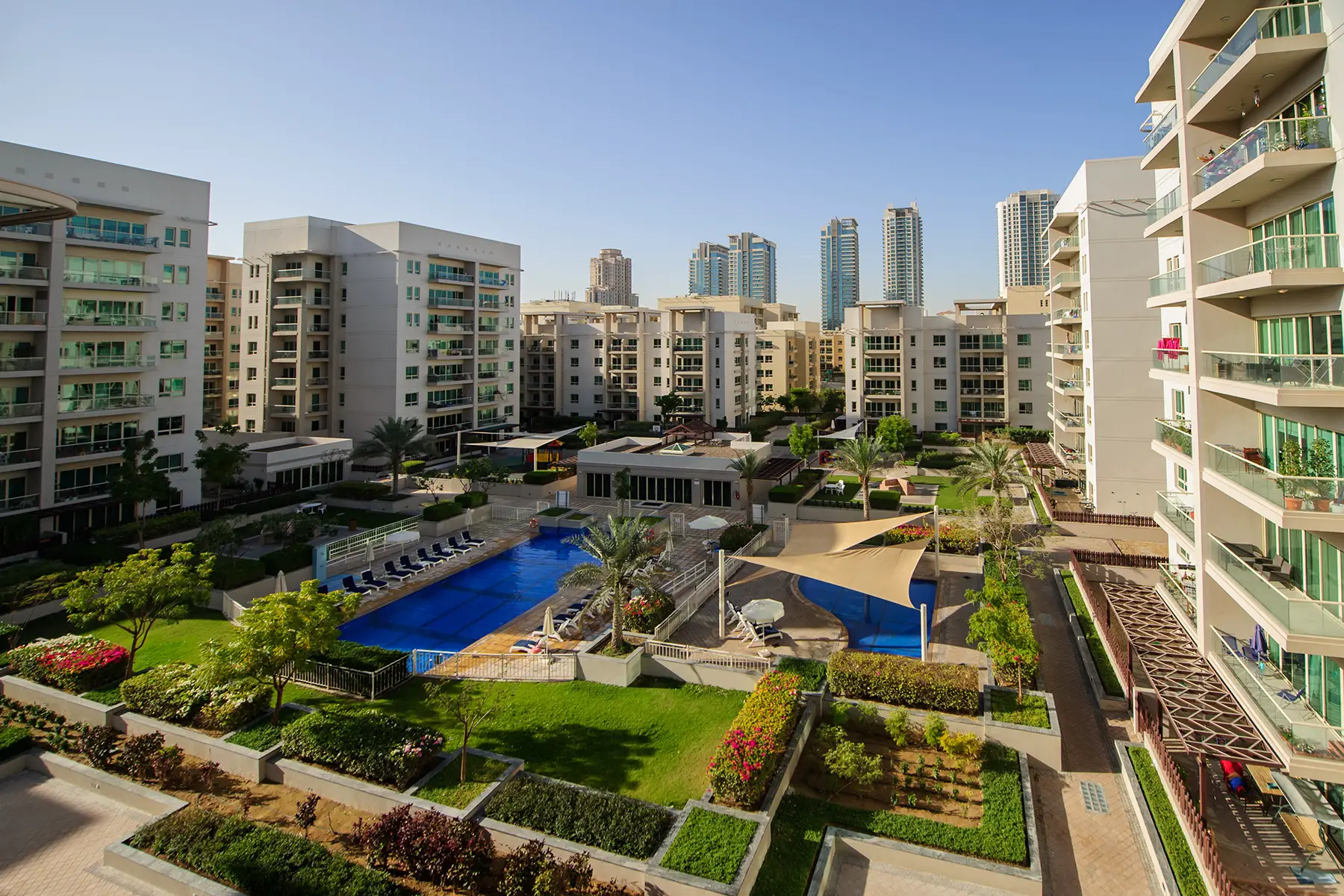
Here is a lowdown on the kinds of properties on offer:
Villas in compounds
These come with 24-hour security and a host of facilities (community centers, shopping areas, pharmacies, playgrounds, parks, swimming pools, gyms, and so on). You can get 2, 3, and 4-bedroom villas, which come with a garden. Properties perform maintenance internally.
Standalone villas and townhouses
These can include up to five or six bedrooms, large gardens, and a private swimming pool. Depending on your contract, maintenance may or may not be part of the deal.
Apartments
Starting from studios, and going up to extravagant penthouses, there’s the entire gamut of housing available. Most buildings, especially the newer ones, have a gym, swimming pool, and round-the-clock security.
Serviced apartments and hotel apartments
These work like hotels and throw in housekeeping and in-room dining (you can also cook your own food). You can rent these for shorter stays, say a few weeks or months. There is no paperwork: you can just submit an ID, pay an advance, and move in. There are also no separate charges for electricity and water, and WiFi is usually free.
Furnished and unfurnished homes
Apartments and villas are either furnished or unfurnished. Unless it’s for a short stint, most people prefer to go for unfurnished places that they can do up as they wish. Sometimes white goods, such as refrigerators, washing machines, dishwashers, and cooking stove/oven, come with the property; these are semi-furnished.
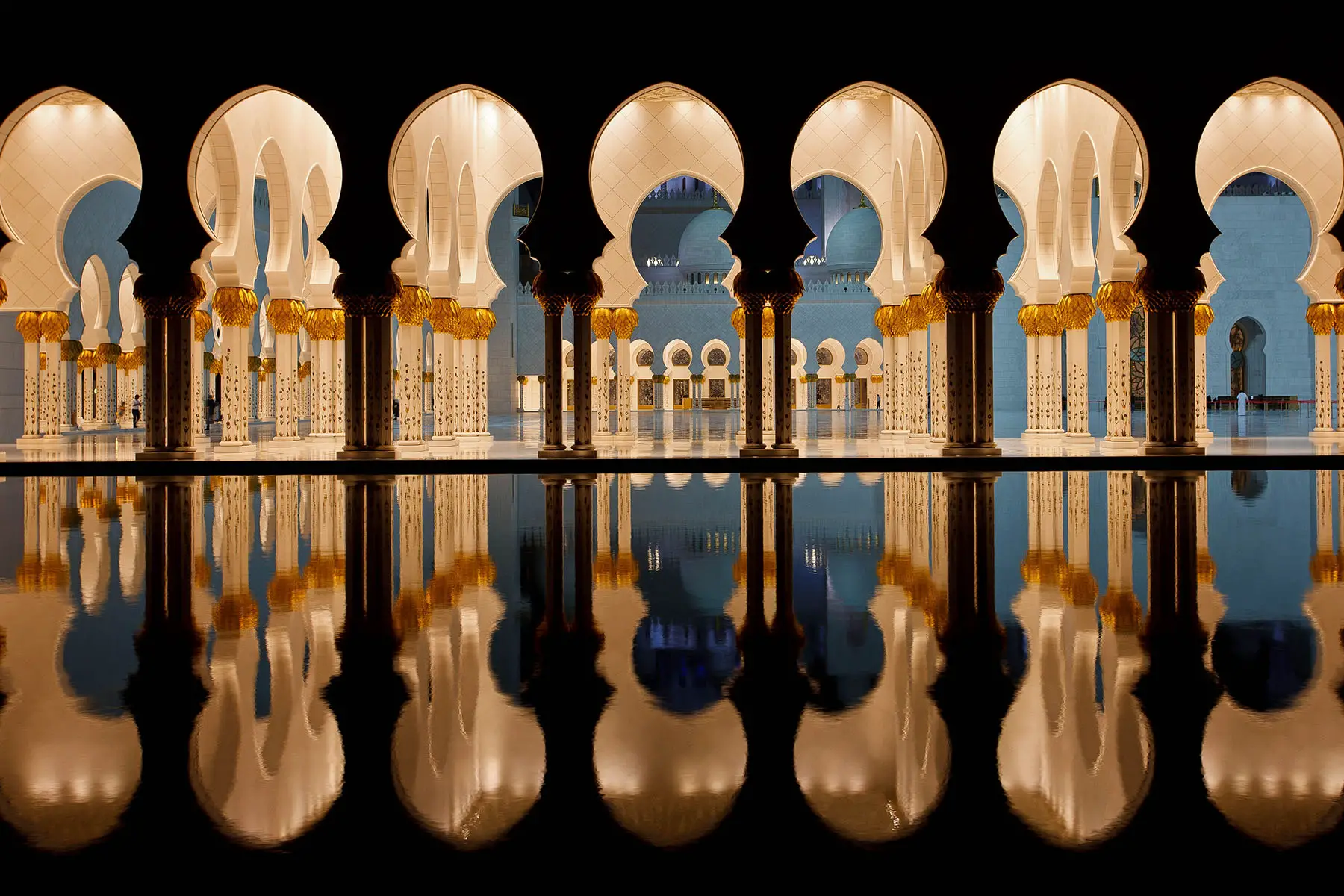
If you are renting a furnished place, there is a chance that things like cutlery, crockery, or bed linen may not be included. Have a discussion with your agent/landlord in that case. Make an inventory of the items, and take photos if you want to play it doubly safe. Then make your landlord sign off on the inventory list, and co-sign it.
Finding a place to rent in the United Arab Emirates
Most properties are on online property sites. Some of the most popular sites include:
In addition, you can search the print and online classified sections of leading newspapers in the UAE, such as Gulf News, Khaleej Times, The National, and Gulf Today. These will include the names and contact numbers of agents or landlords.

Most properties are handled by agents, but once in a while, you will come across places that have been listed directly by the landlord. In the UAE, almost all agents are English speaking. Once you identify a property, you should call up the agent and request a viewing date and time as per your convenience. Most agents work on weekends as well.
You will also find buildings that have empty apartments flaunting hoardings that say “for rent” along with a contact number. If you fancy a particular building, you may even go and have a chat with the front office staff; they will let you know if there is an apartment for rent, and how to contact the agent or the landlord.
Finally, you can contact your office HR to find out if they have any listed agents who will give you a discount.
Finding student housing in the UAE
Many colleges and universities provide on-campus boarding, which comes fully furnished and offers various options such as dorms, studios, and one-bedroom flats. If you opt for this, you need to figure out what suits you best and apply. Therefore, if you are applying to, say, Abu Dhabi University, visit its website and take your pick. The course fee will factor in your residency, which includes all utilities and WiFi.
Educational institutes that do not have boarding arrangements usually work with purpose-built student housing provided by a contractor.
Finding flatshares in the UAE
Flat-sharing is illegal in the United Arab Emirates unless the landlord gives consent in writing in the contract. You can usually find flatshares via word of mouth or social media. Sometimes, information on flatshares is available on local community center boards.
How to rent a property in the UAE
Once you contact the agent, property manager, or landlord (in case you are searching directly), you can set up a time as per mutual convenience. Most agents work on weekends as well. You should start this process once you have your residence visa and bank checkbook in hand. If your visa is taking time, you can ask your company to give you a letter stating that your visa is in progress.
Make sure to view the property in clear daylight, insist on a tour of the building, and check out all of the facilities. If you are not satisfied, your agent is likely to have more properties to show you.
When you identify a property, you can book it by paying the security deposit; this is usually 5% of the annual rent.
Important things to know
- Tenancy contracts in the UAE are annual.
- You must submit your passport copy, residence visa copy (if your visa is not yet processed, your company’s/sponsor’s letter will work temporarily, but hand over a copy of the visa the moment it comes through) for the tenancy contract to be drawn out.
- It takes four to five working days for the contract to be drawn out. The paperwork is done by the agent in consultation with the landlord.
- Rents are mostly paid quarterly, but some landlords may ask for three checks instead of four. You might actually get a better deal if you decide to give two checks. Whatever the case may be, you have to give postpaid checks at the time of signing the contract. Make sure to get a receipt for the checks.
- You also have to pay a security deposit; in cash, if you want. Keep the receipt carefully, as this has to be submitted when you seek a refund at the end of your term.
- If you use an agent’s services, you can pay the commission in cash or by check. It is usually 5% of the rental value.
- Contracts are binding for a year, so if you leave out of turn, you will need to pay a penalty; usually two months’ rent, and you also have to give two months’ notice.
When can you move in?
If all goes well, you can actually move in within the week. The moment you have your contract, you can apply for water and electricity (in some emirates, such as Dubai, it’s a simple online process). It takes 24 hours for the services to kick in.
Rental costs in the United Arab Emirates
In Dubai and Abu Dhabi, the average rents are much more than the other emirates. You will have many instances of people who work in Dubai living in Sharjah or Ajman because they want to save on rent.
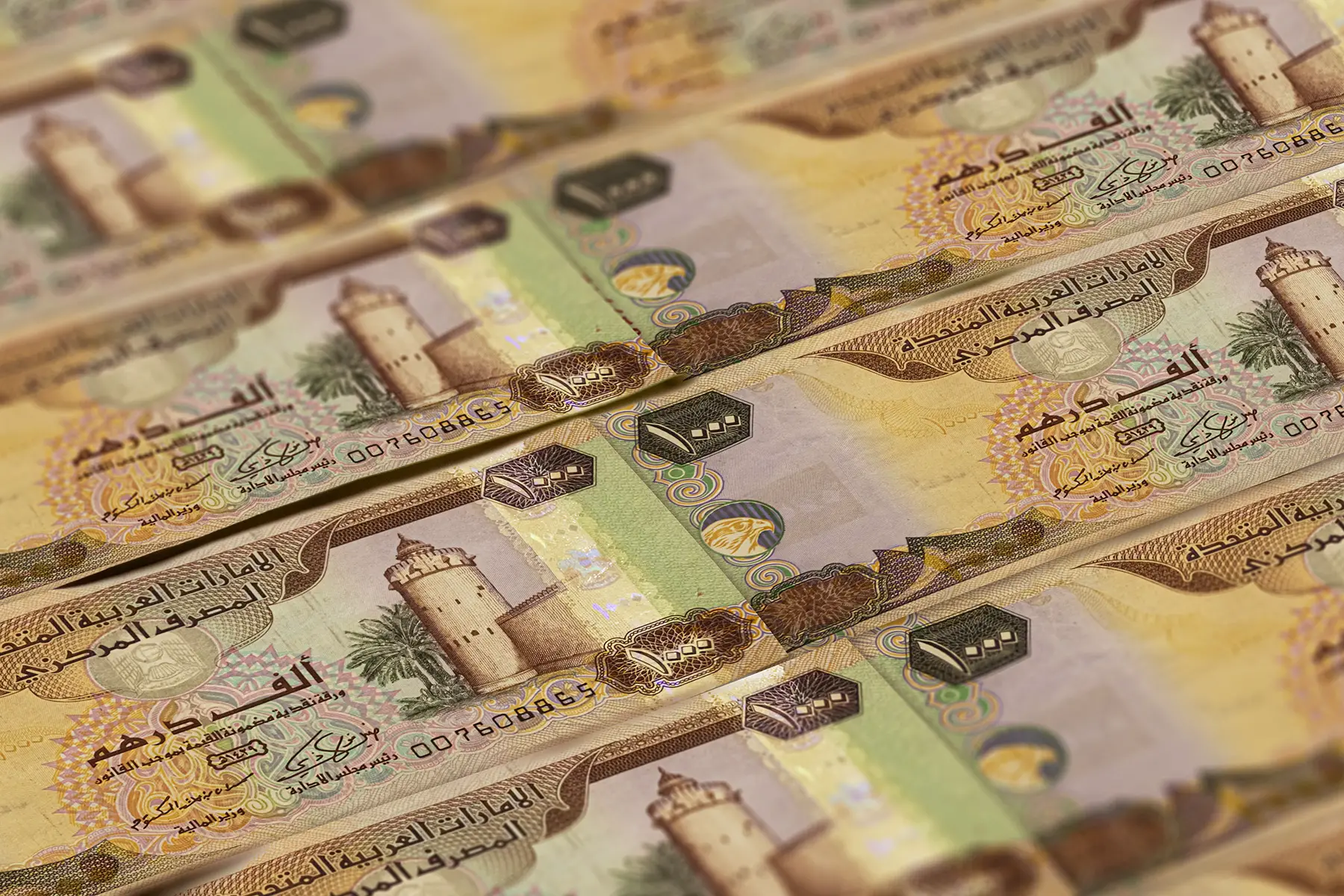
While renting a one-bedroom apartment in a slightly remote (and therefore cheap) part of Dubai or Abu Dhabi will set you back AED 40,000 to AED 45,000 annually, places in Sharjah or Ajman are at least 40 to 50% cheaper. They will also be in prime locations.
In the more expensive emirates, a two-bedroom apartment will cost about AED 90,000 to AED 100,000 in a tony neighborhood. A three-bedroom villa in Dubai may cost upwards of AED 150,000; whereas in Sharjah you may get it for AED 90,000.
Rents are paid through post-paid checks, usually dating from the time you move in. So if you occupy a place on the 10th of a month, subsequent encashment will happen on the 10th of every quarter; or once in four months if you have opted for a three-cheque plan.
If your rental check bounces, there is a heavy penalty if your landlord complains. In the past you could be jailed, however now laws have been amended. If there is a valid reason for the check bouncing, speak to your landlord and assure him you will pay him as soon as you can.
Rental deposits
The rental security deposit in the UAE is generally 5% of the total rental value; you’ll pay this upfront. It is refunded once your term is over, you move out, and the landlord is satisfied with how you have maintained the premises; and that there are no outstanding utility bills.
Extra costs
In the emirate of Dubai, a housing fee applies for your water and electricity bill; this is the equivalent of 5% of your monthly rent. So if your annual rent is AED 60,000, and monthly AED 5,000, the housing fee will be an extra AED 250 month. This comes factored into your utility bills at the end of every month.
In Dubai, every time you sign a contract – a new one or a renewal – there is an ejari fee of approximately AED 200. Ejari is the registration fee of the premises online, which RERA Dubai enforces.
Tenancy contracts in the United Arab Emirates
Most rental contracts in the UAE are annual. If you are staying for a shorter period, you may want to consider a hotel apartment or a serviced apartment, where you can pay weekly or monthly (in advance).
The tenant and the landlord must sign the contract; no witnesses are necessary.
If the tenant is breaking the contract and moving out before turn, then he/she will have to give a two-month notice and pay a penalty. The standard penalty is usually two months’ rent and will be specified in the tenancy contract. Some contracts state that the tenant will have to pay the entire term’s rent as a penalty; so if you are not sure about your annual commitment, be sure to communicate the same to your agent/landlord.
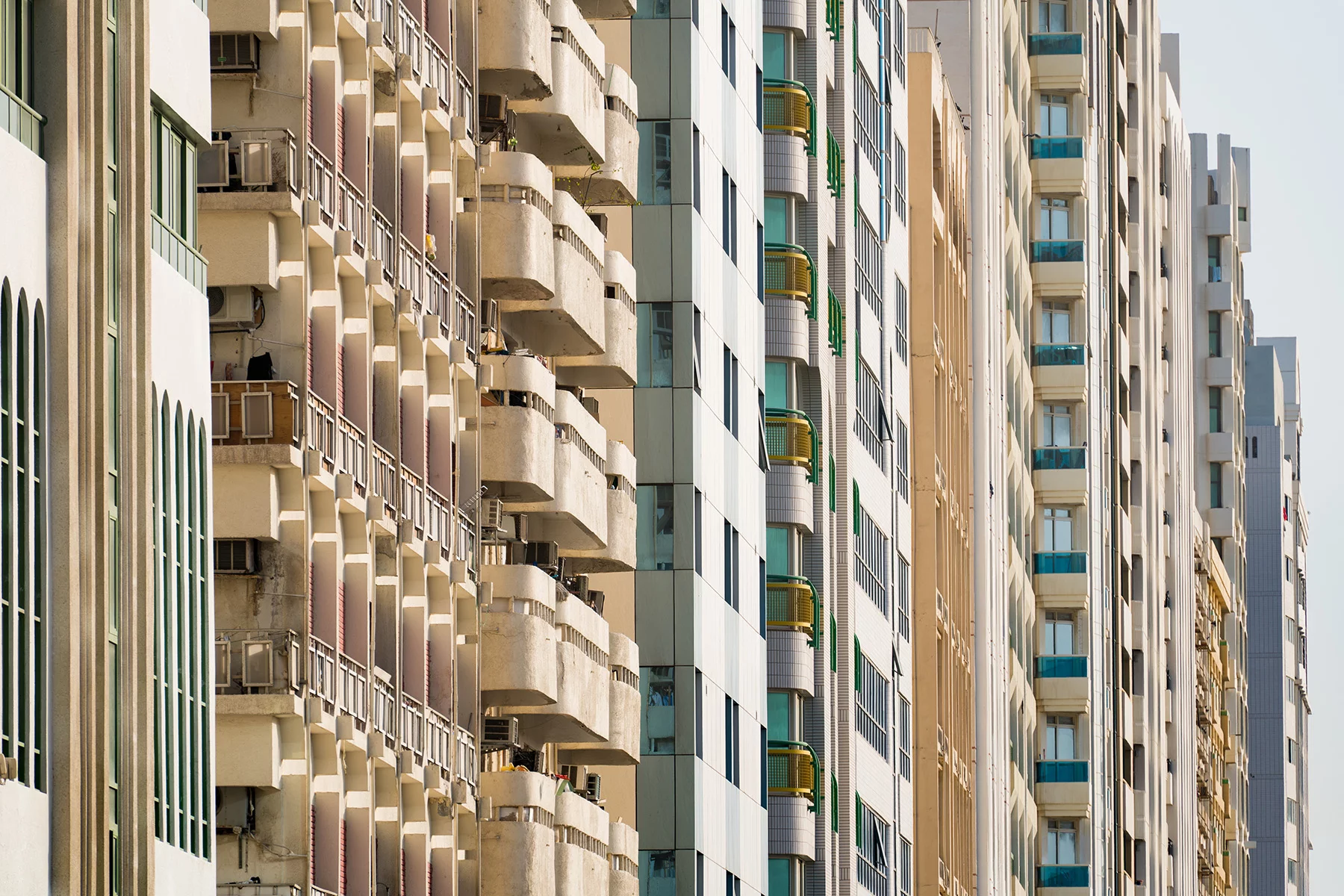
Tenancy contracts in the UAE are usually four-check ones (quarterly); if you settle for a three-check or a two-check one, you get a discount.
If the landlord wants their premises vacated for personal reasons (which is rarely the case), they must give three months’ notice. Obviously, the tenant doesn’t pay any penalty.
Tenant and landlord rights and obligations
The landlord’s obligations
- The landlord must provide you with an English-translated copy of the contract, along with the receipt of the security deposit.
- They cannot increase the rent for the duration of the one year of the contract.
- At the end of the year, the landlord can raise the rent adhering to Real Estate Regulatory Authority guidelines. If new guidelines come into effect during the term of the contract, the tenant cannot ask for a rent reduction. Basically, rents cannot be increased or reduced once the contract is drawn up.
- If someone is moving into a furnished place, the landlord should provide him/her with an inventory. The tenant needs to verify and sign off on the same so that discrepancies do not crop up later.
- If a rent check bounces, it is a punishable/criminal offense by law for the tenant; the landlord also has the right to evict him/her and his/her family immediately.
- In apartment buildings, the landlord will have to maintain all external and common areas — lobby, corridors, pool, gym, etc. If the landlord does not own the building and only owns the apartment you rent, it is usually him that pays the building maintenance (unless specified in the contract).
The tenant’s rights
- The tenant needs to carefully scrutinize the papers before signing. Remember: if you have signed on the dotted line, you cannot renege on any of the clauses, even if they seem unfair to you.
- At the end of 12 months, the tenant is under no obligation to renew the contract if he/she isn’t agreeable with the revised asking rate.
- Tenants can only alter fixtures and fittings, or carry out any other form of alteration, with the consent of the landlord; this is something which the contract should stipulate.
- The tenant will have to pay a penalty in case he or she breaks the contract and leaves early; this is usually two months’ rent.
- Sub-letting or flat-sharing is legally unauthorized unless the tenant has the landlord’s express and written consent.
- In buildings with apartments, there is usually a garbage disposal chute on every floor; it’s the responsibility of the tenant to dispose of trash into the chute. There shouldn’t be any remnants of trash lying on the floor or in any common area. In villas, maintenance workers will collect your garbage. If you live in a standalone villa, you will have to use the services of local municipality garbage collectors, and pay them the standard rates.
- The tenant needs to maintain the property well. If at the end of the term, there are any damages, the cost of fixing them will come from the security deposit.
Where to go in the event of a dispute
All emirates have rental disputes resolution committees. In Dubai, for instance, there is the Rental Disputes Center, at Dubai Land Department’s head office in Deira, while Abu Dhabi also operates the Abu Dhabi Judicial Academy.
You can file a complaint by submitting the following documents:
- ID proof of tenant and landlord (recognized by the emirate);
- Originals and copies of passport and visa;
- Original rent contract;
- Rental deposit receipt
Utilities and telecommunications in the UAE
All properties, unless you are living in a serviced apartment, need tenants to get utilities (electricity and water) and telecommunications (Wi-Fi and landline) installations done themselves. At times, the chiller (read: air-conditioning) costs in apartments are borne by the landlord; they will probably charge you more by way of rent to accommodate that.
If you pay your agent extra (or if this is part of the deal), then he/she can help you out. This would be helpful for electricity, water, and gas connections since you need to have them in place when you move in. Many of the properties have electric cooking ranges, so you may not even have to apply for a gas connection.
When you disconnect electricity and water, you need to go in person to any of the centers and fill out the closure form.
Tips for renting in the UAE
- If you have a pet, make sure your building is pet-friendly. Villas are pet-friendly in any case;
- You may want a legal expert – or at least someone who has been living in the UAE for a while – to have a look at the contract in case you are missing the subtext;
- File all paperwork very carefully; e.g., the tenancy contract, receipt for (refundable) security deposit, the receipt for the (refundable) deposit of utility services, and so on;
- Places like Dubai are high on the party quotient; but if you are having one at home, don’t pump up the volume too high. Keep your neighbors informed, because they have the right to call the police;
- If you are living in an apartment building, you cannot create any disturbances in the common areas;
- Be respectful during the Holy Month of Ramadan. Do not eat or dress inappropriately in the common areas during the fasting time.

